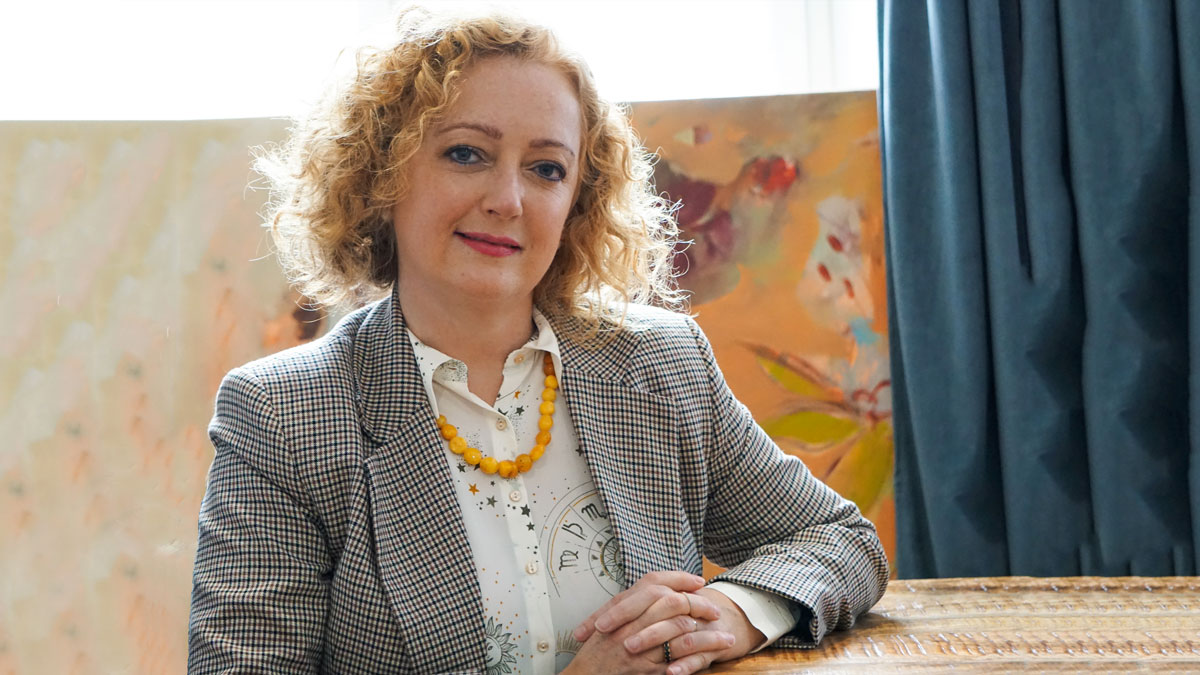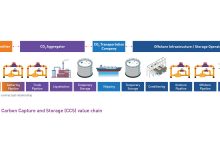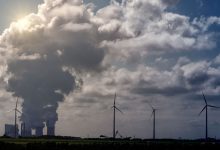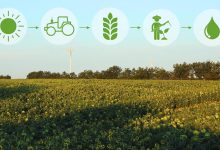Q&A: Magdalena Pavlak-Chiaradia on Creating Trust through Transparency and Traceability of Data
We met Magdalena Pavlak-Chiaradia, Vice President of Sustainability Global Service Line at Bureau Veritas, at ‘Net Zero Carbon Summit 2022’, organized by GOVNET on May 19th in Bucharest. As the keynote speaker of the conference, she delivered a lecture on Climate reporting: Creating trust through transparency and traceability of data.
Talking about net zero transition, Magdalena Pavlak-Chiaradia explains the importance of data transparency and traceability for sustainable value chains, and how Bureau Veritas can help companies to achieve an accurate net zero calculation.
In your speech you insisted on transparency and traceability of data. Why are they so important and how can data transparency and traceability be implemented in sustainability? What are the benefits of data clarity?
Magdalena Pavlak-Chiaradia: Bureau Veritas believes in ‘Supporting clients in collecting, identifying, and verifying the right sustainability data to shape a world of trust.’
It is about trust, transparency and traceability is how we create trust. Trusted data can be acted upon, seeing how, where and what data is collected is how we know where we are and where we need to go. A black box approach does not work. BV is in the business of validating data, certifying operations, it is where our name recognition comes from, it is our Brand.
Verification of Sustainability-related collected data is a new frontier. BV is well positioned to compile verified actionable data. We have been doing it for over a century. Our clients and the market trust our approach and technical expertise. The economic decisions needed to be made from an ESG assessment needs that surety.
The weight of ESG performance for a company’s financial standing, for stakeholders, and their clients, places a very high value on the data. We build trust and strong reputations in the market with our approach to sustainability.
What are the main elements of a carbon footprint calculation methodology?
Magdalena Pavlak-Chiaradia: I’d prefer to discuss the Net Zero methodology which Carbon Footprint is Parts 1 & 2.
Inventory + Calculation + Trajectory + Reduction + Communication = Net Zero
In terms of the inventory, it is critical to appropriately define the scope of the analysis. This may entail a technical review of processes and determine the appropriate depth to which the inventory has to reach.
If we are talking about organization’s carbon footprint, I recommend calculating in accordance with the GHG Protocol A, Corporate Accounting and Reporting Standard and its scope 2 Guidance. An amendment to the GHG Protocol Corporate Standard and Corporate Value Chain (Scope 3). Accounting and Reporting Standard Supplement to the GHG Protocol Corporate Accounting and Reporting Standard. These are some of the most popular standards for calculating greenhouse gas emissions, they are used as a basis for reporting greenhouse gas emissions in the Global Reporting Initiative’s Corporate Social Responsibility Reporting Standard. This reporting is the form used for the Carbon Disclosure Project. (The organization collecting the most information about greenhouse gas emissions from companies worldwide). For calculations, it is important to understand the applicability, the industry standards used, and the jurisdictional requirement, for various conversion factors in a database. The data must be accurate AND appropriate to properly calculate a footprint. There is no ‘one size fits all’ approach.
On the path to zero carbon, how is Bureau Veritas bringing transparency, trust, and credibility to companies’ ESG commitments?
Magdalena Pavlak-Chiaradia: We believe in a methodology that documents each step. This provides a deliverable with a full view of assumptions, approaches, and findings, in addition to the final calculation.
Our clients can respond to questions from stakeholders at all levels with accurate and reliable answers. The methodology also provides efficient and precise information for evaluating year-on-year results.
In your opinion what are the most important social, health and economic benefits of zero carbon and zero energy projects?
Magdalena Pavlak-Chiaradia: According to the World Health Organization (WHO), in 2021 it is estimated that 4.2 million people died prematurely every year from outdoor (ambient) air pollution.
In 2019, NOAA (National Oceanic and Atmospheric Agency) reported that the concentration of carbon dioxide in Earth’s atmosphere is about 412 parts per million (ppm) and rising! This represents a 47 percent increase since the beginning of the Industrial Age when the concentration was near 280 ppm. And there has been an 11 percent increase just since 2000, when it was about 370 ppm. This should alarm everyone.
According to Oliver Wymann, in his 2019 report, a low-carbon transition is creating a demand for new sustainable goods and services. These are worth trillions of dollars across all sectors. The transportation sector has seen rapid growth in zero-emission vehicles and an explosion of new mobility services. By 2030, electric vehicles are expected to account for 28% of global passenger vehicle sales. Tesla has become the most valuable car maker in the world, this is despite generating less than one-tenth the revenues of the second-most-valuable company. In the United States the green economy is already worth $1.3 trillion and growing by 20% a year. Fifty percent of recent growth in consumer-packaged goods has come from sustainable product lines. Sales of plant-based foods, which generally have a significantly lower carbon footprint than animal-based alternatives, have grown at five times the market rate and reached annual sales of $5 billion. New financial products and services have emerged in response. Oliver Wyman estimates that the revenues from sustainable finance could amount to $100 – $150 billion a year.
The social, health, and economic impacts are tremendous. Net Zero can save lives, create jobs, and grow GDP. Through the creation of new jobs to manage Net Zero and the transition to low-carbon economy there are so many new opportunities for business and for people to work. The reduction of carbon, the major contributor to global warming, can be reversed and thus the impact from rising sea levels. Climate Change has also led to a collapse in animal diversity and is setting the planet up for ecological breakdown directly impacting human health. There is no more important action we can take as humans than protecting the future. We as a society can act and take control is we transition away from a carbon-based economy as quickly as possible.






